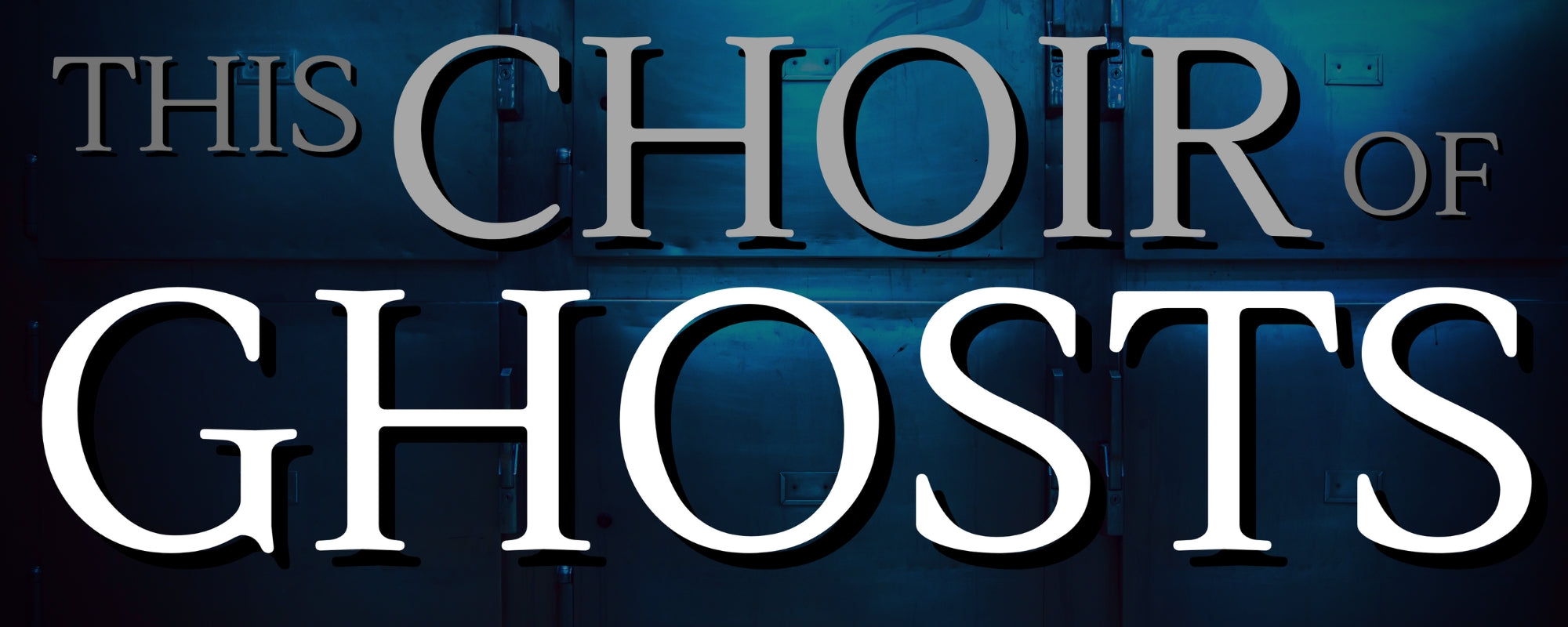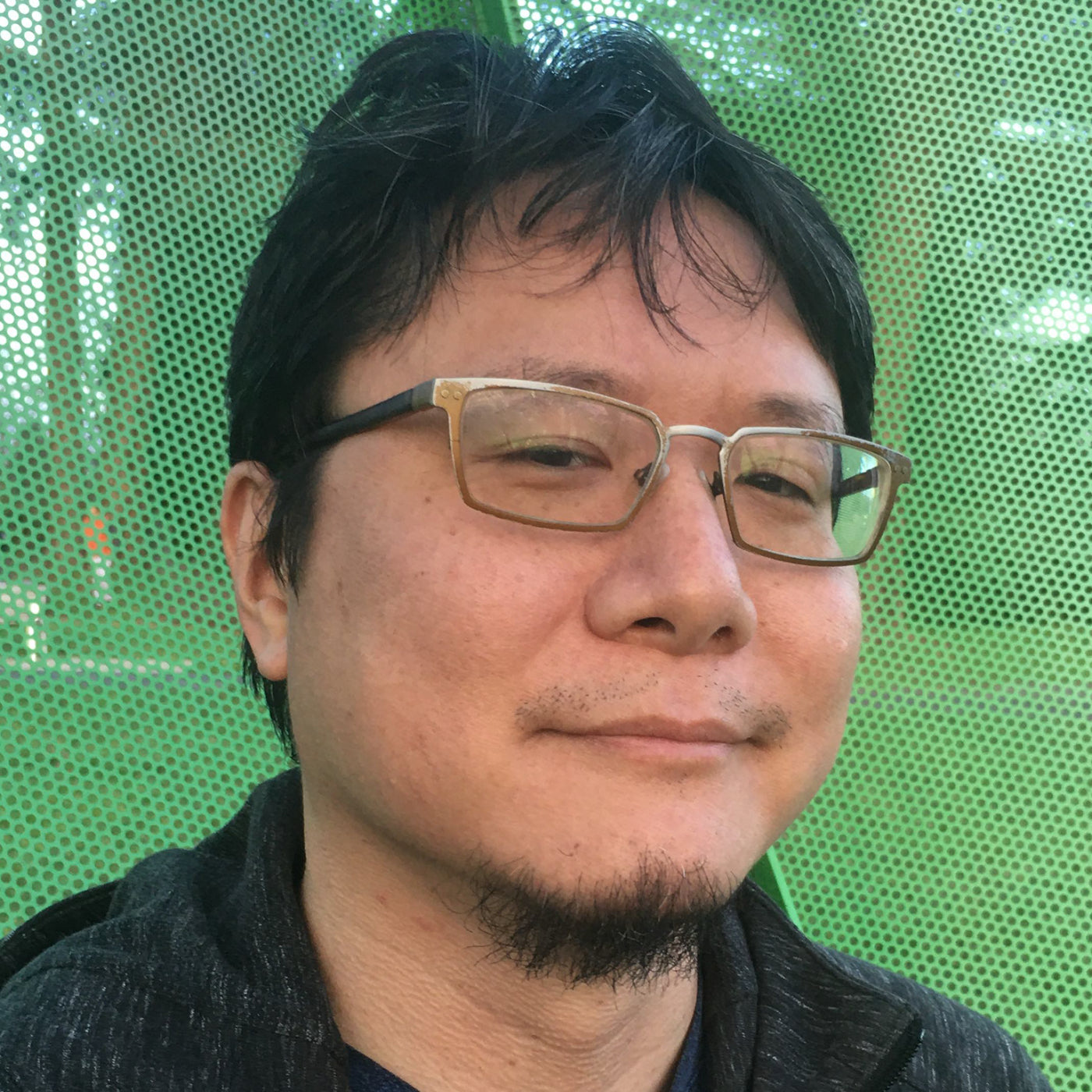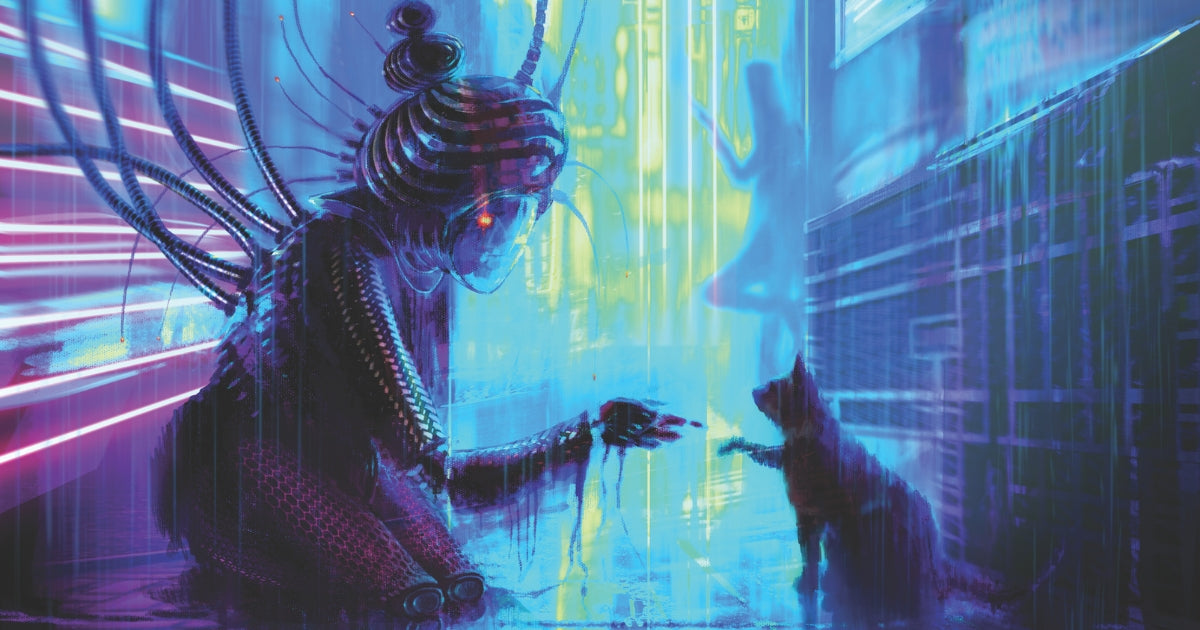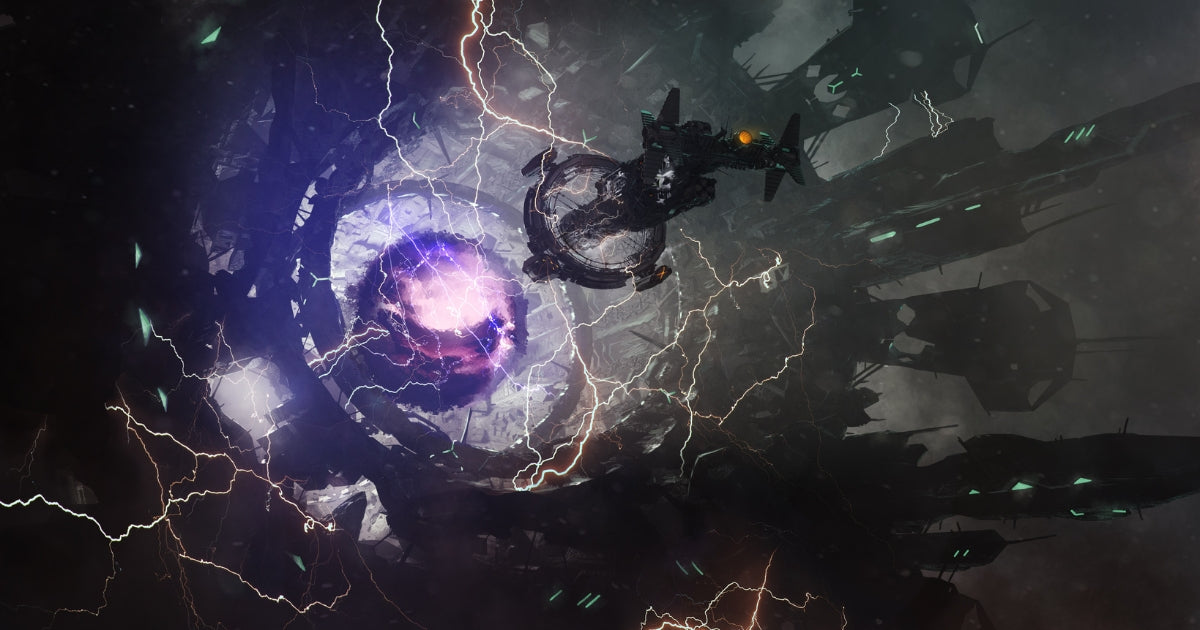

This Choir of Ghosts
By Monte Lin
Subject-412 wakes in absolute darkness. Their drug-induced sleep leaves them groggy on the cold, stone floor, unable to shiver. Moments or perhaps hours pass, as their thoughts and memories sift and settle back into place. Lights. The operating table. The head surgeon’s worried brow. The realization hits Subject-412 in the chest: they are the Experiment now.
The Experiment never deviates. After the surgery, the test subject is placed into the Cube and sealed within. The subject receives nothing other than the key, a metal card two inches wide, three inches long, and barely a millimeter thick, randomly encrypted to open the door to the Cube. Once encoded into the key, all other records of the code are wiped. Sometimes the subject enters the Cube in their surgical gown. Oftentimes they don’t receive the dignity; the surgeons claim they can’t afford more gowns.
The Cube has enough air for a few days, but no food or water, so the subject must utilize their new implants to bend the fabric of space-time, reach through the basalt rock, and place the key onto the door to open it. There is no way to open the door otherwise. The surgeons on the other side require a week to decrypt the key, if they even have the desire to do so.
Families receive compensation for handing a subject over to the Complex, enough food and medicine for a year, multiple years if they ration. Desperately needed compensation in a world blasted white, the air dead and choking in ambient heat. The surgeons claim this is the best solution for humanity. They call subjects saviors to make everyone feel better about their sacrifice. “Once you can bend space-time,” they say, before throwing them into the Cube, “you can save us by carrying us from this dying world.”
Subject-412, encased in darkness, cries for what seems like hours. The cold basalt echoes back. They creep along the edges of the Cube, discovering the corners and edges. The surgeons believe the artificiality of the environment should force the subjects to focus. Nothing else exists in this tomb, nothing else except Subject-412 and the key and some scratches on one of the walls. Self-preservation, the surgeons believe, should trigger the implants. They have been wrong four hundred eleven times.
Those who ask why they must do this Experiment this way find themselves outside, their lungs seared by heat and silica. They pound on the steel door of the Complex with the other desperate souls, begging for food, water, and shelter. A couple even try to volunteer for the Experiment but are met with stony refusal: “Your knowledge of the Experiment biases the Experiment.” This isn’t true, but the message is clear. The surgeons are rational, the Experiment is rational, and rationality cannot be questioned.
With nothing to touch except basalt, nothing to hear except their own breathing, nothing to see except darkness, Subject-412 curls up into a ball and retreats into themselves. They fall into a fitful sleep, half dreaming, half awake. Their implants warm and they feel a new, artificial sixth sense. To Subject-412, it feels like a voice in their head, a whisper.
“WhereamIwhereamIwhereamIwhereamI…”
“Hello,” Subject-412 says aloud, “who’s there?”
“Lemmeoutlemmeoutlemmeoutlemmeout…”
“I’m stuck in here, too. What is your name?”
“Subject-411subject-411subject-411…”
“I’m Subject-412.”
The voice pauses, no longer strung together in panicked heartbeats. “This means it works! If you are in my future, it means it works!”
“But…the previous subjects didn’t…” They have no desire to finish that sentence, and the voice in their head quiets. “I’m sorry.”
“Then…I’m in your past.” A pause, the acceptance of the damned. “It is too late for me. I’m merely a ghost to you…And only you…yours is the only voice I can hear.”
Subject-412 dreams deeper, and more voices join in a choir, subject numbers decreasing like a countdown, stepping backward through time. Each voice cries. Each begs for help.
“The surgeons say no one has exited the Cube…” Subject-412 says.
The choir erupts into a cacophony, and Subject-412 realizes in talking to these voices, they have confirmed their end. They are witnessing all of their last days. One subject takes their key and scratches at the basalt, another does the same, and another. Subject-412 stumbles around, feeling the wall, and finds the vertical scratches again, lines upon lines, the last screams of the dead.
“What can I do?” Subject-412 says.
“I am already dead,” most say, resigned to their fate the moment their families sold them. Some insist Subject-412 is lying, is a hallucination, is a trick. Others beg to change Subject-412’s past, their future, to reach out into time and unlock the door.
Subject-412 tries, they attempt to touch the others’ keys, to touch the door, but they can’t change the past, only witness it. They helplessly hear their voices and empathize with their fear and pain, this choir of ghosts.
“Are you the only one who can hear us, 412?” Subject-52 asks.
Subject-412 repeats the question throughout the choir. “Everyone only hears a singular voice, mine. But I hear you all.”
“If I’m in your past,” Subject-52 says, “then I’m bounded in time, like a book. I have a beginning and an end. I am mere scratchings on the rock. I can’t be changed.”
Subject-412 relays this to the rest, word for word, an echo of an echo, and it quiets most. A few continue to weep and to rage.
“But you are not bounded, 412, you are like a conversation. You have the potential to be free, to change. Go and escape.” Subject-52 laughs. “Unless you are someone else’s past.”
Subject-412 places a hand on the door and reaches out in the other direction, pulling toward the future, grabbing at the strands of space-time. If time can be traversed, if space can be crossed, and if they truly have this ability, then they can simply open the door to the Cube. Then Subject-412 opens their eyes, unable to see in the complete darkness, unable to see the future. “I can’t. I’m not strong enough.”
“But do you hear another voice, from 413, perhaps?”
“No, nothing.”
“Then there is still hope for you.” When Subject-412 relays this to the choir, they quiet. Hope for another is still hope.
“What if we push?” Subject-335 says. “What if like the bird’s beak on the diamond mountain, we all push?”
Subject-412 reaches back to all of the previous subjects, to every point of each of their timelines up until they die. Subject-412 can feel this bounded infinity within bounds, four hundred and twelve hands on the same spot on the door. They can feel on the basalt the body heat of all the previous subjects.
Subject-412 blinks. Their eyes adjust to the lights. Surgeons monitor their equipment, but the door to the Cube hasn’t opened, so no alarms sound, no sensors have tripped. Subject-412 feels they are everywhere all at once.
“I am outside…but I am also still inside the Cube.”
“Maybe you are walking in your future,” Subject-52 says.
“I see…I see 413.”
The choir erupts again, hope for another dashed.
“No, I mean…I can see 413 now, with me outside the Cube.”
They walk into the surgical suite, and there, sedated, lies Subject-413, head shaved, ready for the surgery. No, not the future. Their present, the now. Did they expect Subject-412 to fail? Or have they made the surgeries such a part of their routine, they don’t know when to stop?
The head surgeon sits by the tray with the implants, harvested from previous subjects, not even sterilized. The surgeon sits slumped against his chair, defeated, sighing, eyes worn and hands calloused. At first, Subject-412 feels moved by their weariness. Even the surgeons in the complex suffer.
The surgeon looks up and jumps in his chair, seeing Subject-412. Yet Subject-412 can see determination in his eyes to continue the Experiment, the same eyes they saw before they fell asleep, before waking up in the Cube.
The metal key, card-shaped, is thin like a scalpel. If strong enough to scar basalt, then strong enough to cut flesh. Subject-412 feels the hands of the previous four hundred eleven subjects on their hand. The choir of ghosts sings a singular note. Not a single one dissents from this decision.
With a swipe of their arm, they carve a line on the head surgeon’s neck, a scream from the dead. With a push, they move throughout the Complex, the same single swipe replicated with each and every surgeon.
They slide next to the Cube, and with a bloody hand, slap the key against the cold stone, opening the door and freeing themselves. The alarms roar, announcing the end of the Experiment, harmonizing with the final note of their song.
Copyright © 2022 Monte Lin
The Author

Monte Lin
Continue reading

Subscribe to our newsletter
Promotions, new products, and sales. Directly to your inbox.



